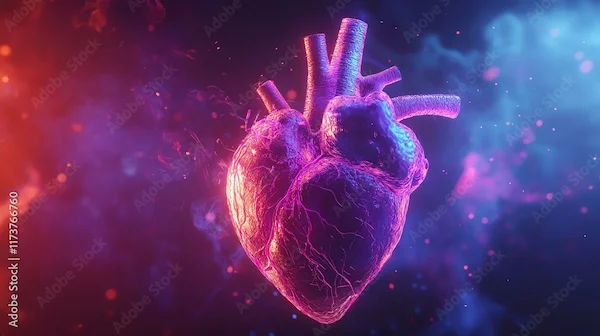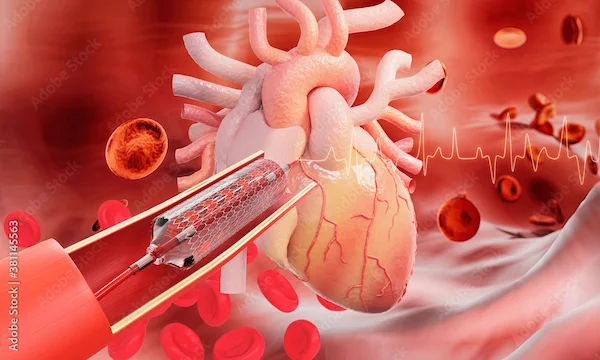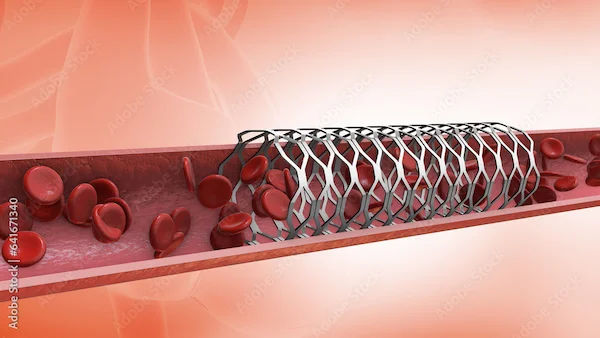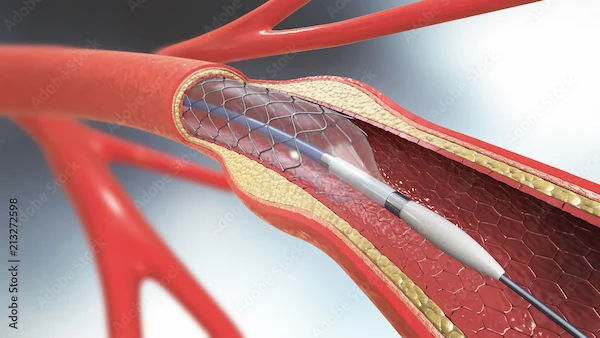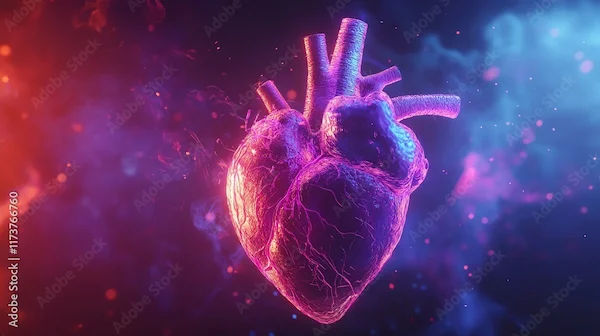Causes Of Fever After Angioplasty
Fever after angioplasty can indicate infection or other complications. Discover common causes, warning signs, and when to contact your doctor.

Written by Dr.Sonia Bhatt
Last updated on 3rd Jul, 2025
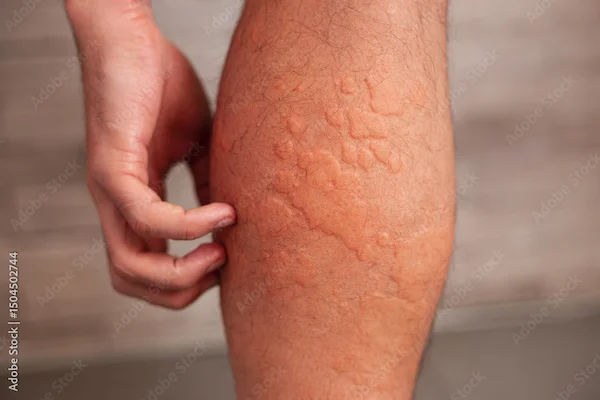
Introduction
Angioplasty is a common and life-saving procedure that helps open blocked or narrowed arteries, improving blood flow to the heart. While it is generally safe, some patients may experience a fever afterward. If you or a loved one has recently undergone angioplasty and developed a fever, it’s natural to feel concerned. This article explains the possible causes of fever after angioplasty, when to seek medical help, and how to manage it effectively.
Why Does Fever Occur After Angioplasty?
A mild fever after angioplasty is not uncommon and can happen due to several reasons:
1. Normal Inflammatory Response
Angioplasty involves inserting a small balloon or stent into the artery, which can cause minor tissue irritation. Your body’s natural response to this may include a slight fever (usually below 100.4°F or 38°C) for a day or two. This is generally harmless and subsides on its own.
2. Infection
Although rare, infections can occur after angioplasty, especially at the catheter insertion site (usually the groin or wrist). Symptoms may include:
Fever above 100.4°F (38°C)
Redness, swelling, or pus at the insertion site
Chills or excessive sweating
If you notice these signs, contact your doctor immediately.
3. Contrast Dye Reaction
During angioplasty, a contrast dye is used to visualise the arteries. Some people may have a mild allergic reaction to this dye, leading to fever, nausea, or skin rashes. This usually resolves within a day but should be monitored.
4. Blood Clot or Stent-Related Issues
In rare cases, a fever may indicate a blood clot near the stent or an inflammatory reaction to the stent itself. This requires prompt medical attention.
5. Other Underlying Conditions
Sometimes, fever may not be directly related to angioplasty but could be due to an unrelated infection like a urinary tract infection or respiratory illness.
When Should You Worry?
While a mild fever may not always be serious, consult your doctor if you experience:
Fever above 100.4°F (38°C) lasting more than 24 hours
Severe pain, swelling, or discharge at the catheter site
Shortness of breath, chest pain, or dizziness
Persistent chills or fatigue
How to Manage Fever After Angioplasty?
Here are some tips to manage fever after angioplasty:
1. Monitor Your Temperature
Check your temperature regularly. A mild fever (below 100.4°F) may not need treatment, but if it persists, inform your doctor.
a883bde8-a7ab-48e8-b75d-c4ea0ea4ceb2
2. Stay Hydrated
Drink plenty of water to help your body recover and flush out any toxins.
3. Take Prescribed Medications
Your doctor may recommend:
Paracetamol (Acetaminophen) for fever and discomfort, avoid aspirin unless prescribed.
Antibiotics if an infection is suspected.
4. Keep the Insertion Site Clean
If you had the procedure through the groin or wrist, keep the area dry and clean to prevent infection.
5. Rest and Avoid Strain
Avoid heavy lifting or strenuous activities for a few days to allow your body to heal.
Preventing Complications After Angioplasty
To reduce the risk of fever and other complications:
Follow your doctor’s post-procedure instructions carefully.
Take prescribed medications like blood thinners on time.
Maintain good hygiene, especially around the catheter site.
Attend follow-up appointments to monitor recovery.
When to Seek Immediate Help?
Seek emergency care if you experience:
High fever (above 101°F or 38.3°C) with confusion
Severe chest pain or difficulty breathing
Excessive bleeding or swelling at the insertion site
Conclusion
A mild fever after angioplasty is usually nothing to worry about, but it’s important to stay vigilant. Most cases resolve on their own with rest and hydration, but persistent or high fever could indicate an underlying issue that needs medical attention.
If you have concerns about fever or other symptoms after angioplasty, don’t hesitate to consult a doctor. Apollo24|7 offers expert cardiology consultations and lab tests to ensure your recovery stays on track. You can easily book an appointment online for personalised care.
Consult Top Cardiologists
Consult Top Cardiologists For Personalised Tips

Dr. Sateesh Marriwada
Urologist
17 Years • MBBS, MS (General Surgery), Mch ( Genito Urinary Surgery)
Visakhapatnam
Apollo 24|7 Clinic - Andhra Pradesh, Visakhapatnam

Dr Ritika Shanmugam
Dermatologist
9 Years • MBBS, MD (Dermatology, venereology, Leprosy)
Bangalore
Apollo 24|7 Clinic - Karnataka, Bangalore

Dr Swatika Kumari
Obstetrician and Gynaecologist
19 Years • MBBS, DGO, DNB Obstetrics & Gynaecology
Nashik
Apollo 24|7 Clinic - Maharashtra, Nashik

Dr S Lakshmi Narasimha Reddy
General Practitioner
9 Years • MBBS
Kondapur
Singam's Kids Clinic, Kondapur

Dr. Smriti Nagpal
Ophthalmologist
13 Years • MBBS , MS (Ophthalmology)
New Delhi
Sunshine mediclinic, New Delhi
Consult Top Cardiologists

Dr. Aneek Roy Chowdhury
Paediatrician
18 Years • MBBS, DNB General Surgery, M CH Paediatric Surgery
Kolkata
Arunodoy Diagnostics and polyclinic, Kolkata

Dr. Janjirala Seshivardhan
Cardiologist
7 Years • MBBS,DNB(GM),DM(Cardiology)
Manikonda Jagir
Apollo Clinic, Manikonda, Manikonda Jagir

Dr. Vikas Kumar Keshri
Cardiothoracic and Vascular Surgeon
12 Years • MBBS (Chennai), MS (Mumbai), M Ch. (CTVS) AIIMS, New Delhi, DNB (CTVS), MNMAS, FRCS-CTh (Eng), FRCSEd-CTh (Edin) FEBCTS (Europe), FACS (USA), MBA (HHSM-BITS Pilani) European Board Certified
Delhi
Apollo Clinic East Of Kailash, Delhi
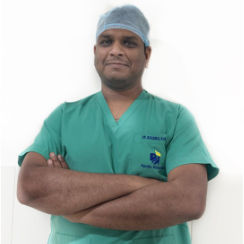
Dr Sharmil Kanna
Paediatric Cardiac Surgeon
10 Years • MD DrNB(CTVS)
Delhi
Apollo Hospitals Indraprastha, Delhi
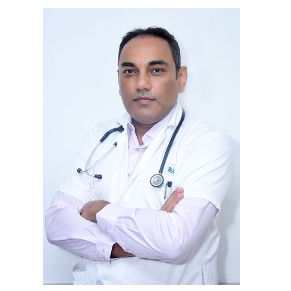
Dr. Rajesh Jha
Paediatrician
10 Years • M.B.B.S., D.N.B.(Pediatrics)
Noida
Apollo Hospitals Sector 26, Noida
(50+ Patients)
